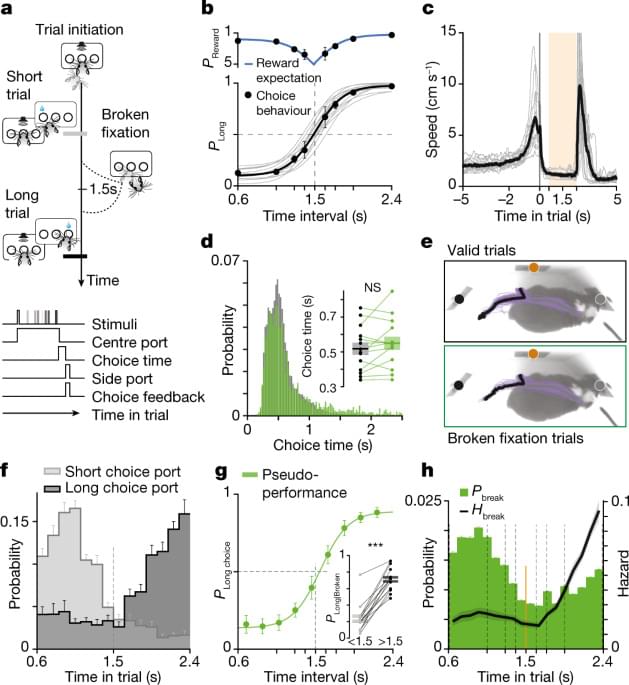Modern technology allows us to measure magnetic fields created by electric signals in our brains. Now, a breakthrough makes detection 10 times better.


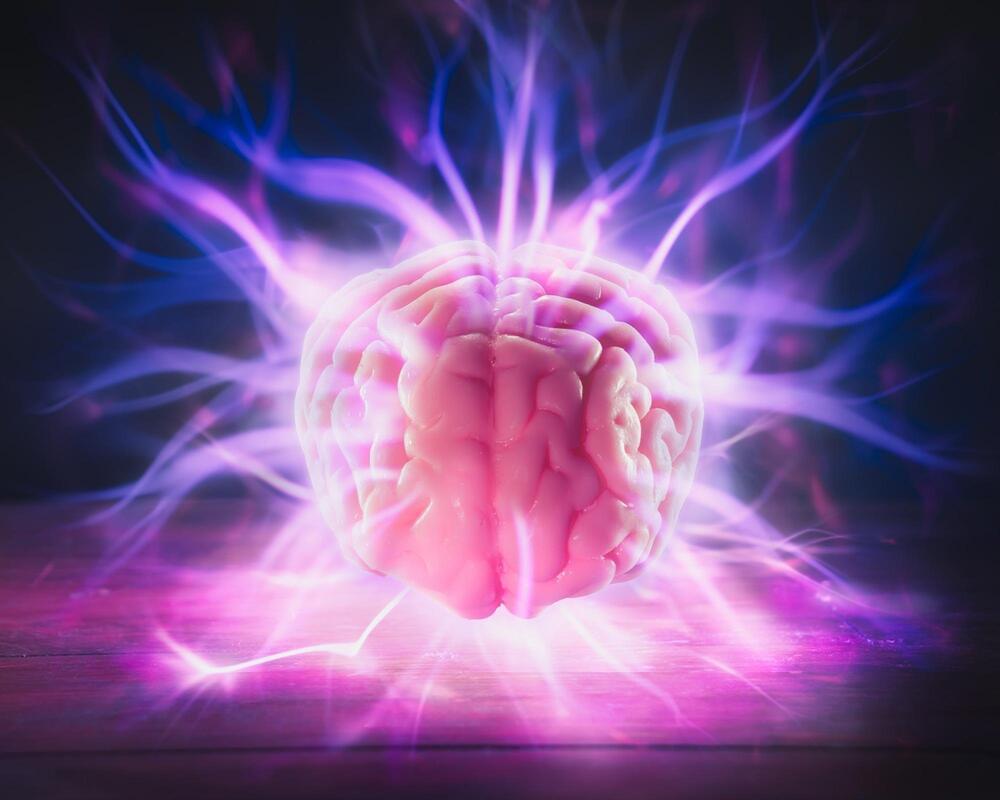
While you read this sentence, the neurons in your brain are communicating with one another by firing off quick electrical signals. They communicate with one another via synapses, which are tiny, specialized junctions.
There are many various kinds of synapses that develop between neurons, including “excitatory” and “inhibitory,” and scientists are still unsure of the specific methods by which these structures are formed. A biochemistry team has provided significant insight into this topic by demonstrating that the types of chemicals produced from synapses ultimately determine which types of synapses occur between neurons.
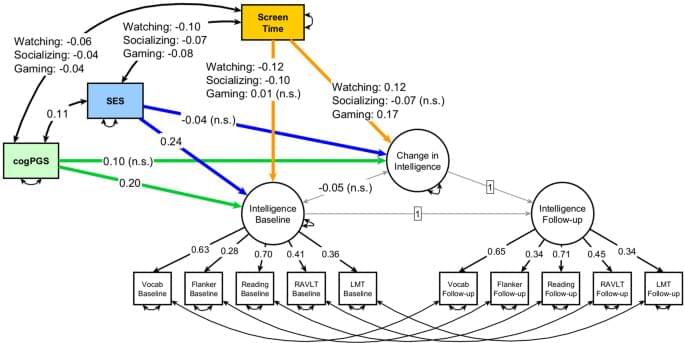
Video games seem to be a unique type of digital activity. Empirically, the cognitive benefits of video games have support from multiple observational and experimental studies23,24,25. Their benefits to intelligence and school performance make intuitive sense and are aligned with theories of active learning and the power of deliberate practice26,27. There is also a parallel line of evidence from the literature on cognitive training intervention apps28,29, which can be considered a special (lab developed) category of video games and seem to challenge some of the same cognitive processes. Though, like for other digital activities, there are contradictory findings for video games, some with no effects30,31 and negative effects32,33.
The contradictions among studies on screen time and cognition are likely due to limitations of cross-sectional designs, relatively small sample sizes, and, most critically, failures to control for genetic predispositions and socio-economic context10. Although studies account for some confounding effects, very few have accounted for socioeconomic status and none have accounted for genetic effects. This matters because intelligence, educational attainment, and other cognitive abilities are all highly heritable9,34. If these genetic predispositions are not accounted for, they will confound the potential impact of screen time on the intelligence of children. For example, children with a certain genetic background might be more prone to watch TV and, independently, have learning issues. Their genetic background might also modify the impact over time of watching TV. Genetic differences are a major confounder in many psychological and social phenomena35,36, but until recently this has been hard to account for because single genetic variants have very small effects. Socioeconomic status (SES) could also be a strong moderator of screen time in children37. For example, children in lower SES might be in a less functional home environment that makes them more prone to watch TV as an escape strategy, and, independently, the less functional home environment creates learning issues. Although SES is commonly assumed to represent a purely environmental factor, half of the effect of SES on educational achievement is probably genetically mediated38,39—which emphasizes the need for genetically informed studies on screen time.
Here, we estimated the impact of different types of screen time on the change in the intelligence of children in a large, longitudinal sample, while accounting for the critical confounding influences of genetic and socioeconomic backgrounds. In specific, we had a strong expectation that time spent playing video games would have a positive effect on intelligence, and were interested in contrasting it against other screen time types. Our sample came from the ABCD study (http://abcdstudy.org) and consisted of 9,855 participants aged 9–10 years old at baseline and 5,169 of these followed up two years later.
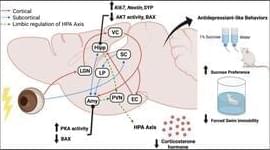
Given that visual impairment is bi-directionally associated with depression, we examined whether transcorneal electrical stimulation (TES), a non-invasive treatment for visual disorders, can ameliorate depressive symptoms.
The putative antidepressant-like effects of TES and the underlying mechanisms were investigated in an S334ter-line-3 rat model of retinal degeneration and a rat model of chronic unpredictable stress (CUS).
TES was administered daily for 1 week in S334ter-line-3 and CUS rats. The effects of TES on behavioral parameters, plasma corticosterone levels, and different aspects of neuroplasticity, including neurogenesis, synaptic plasticity, and apoptosis, were examined.
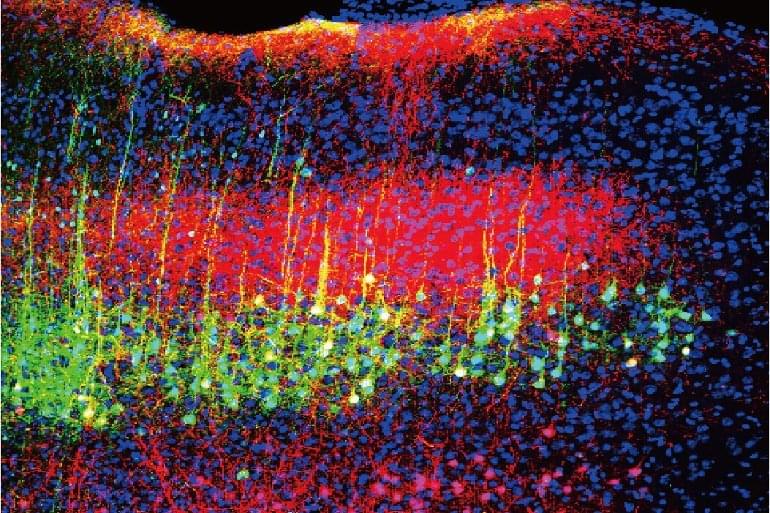
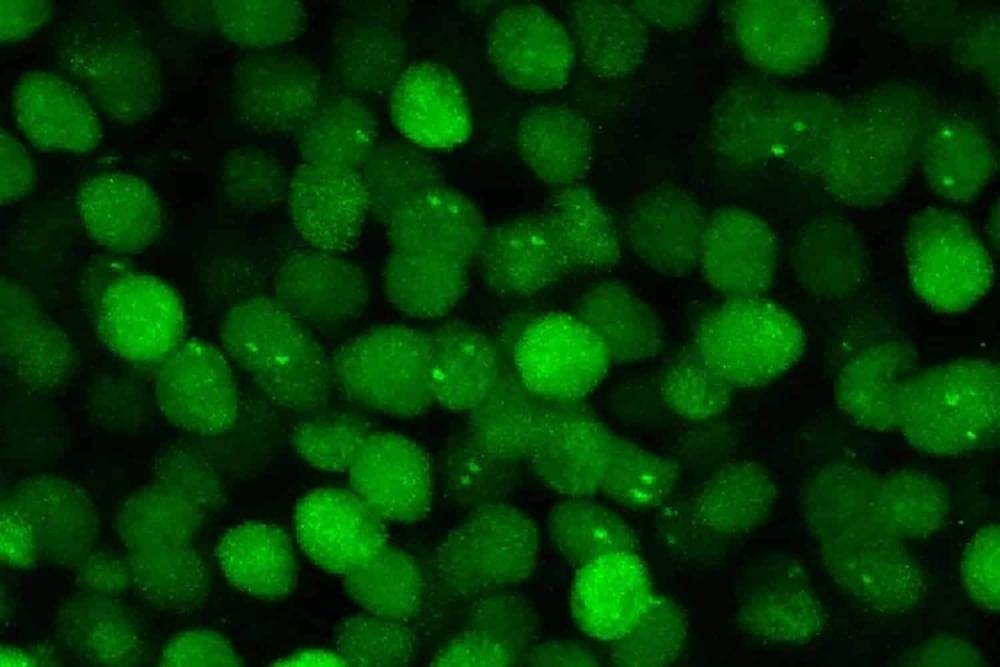
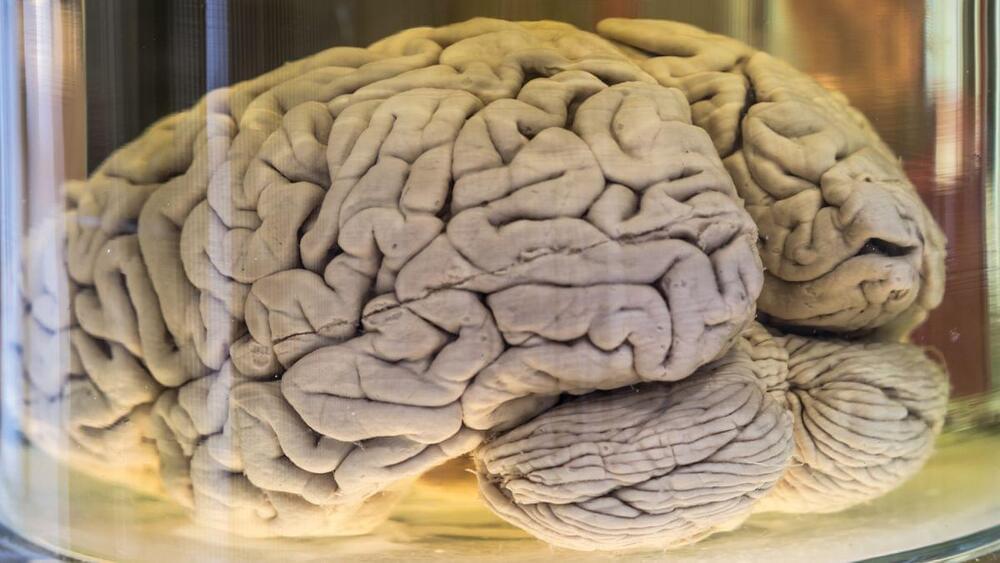
Could a brain ever exist on its own, divorced from or independent of a body? For a long time, philosophers have pondered such “brain-in-a-vat” scenarios, asking whether isolated brains could maintain consciousness when separated from their bodies and senses. Typically, a person’s experiences are characterized by a web of interactions between the human brain, body and environment. But recent developments in neuroscience mean this conversation has moved from the realm of hypothetical speculation and science fiction, to isolated examples where consciousness could be sealed off from the rest of the world.
It may sound like science fiction, but can actual science keep a brain alive in a vat?
Learn More.
The Neuro-Network.
#Fetal #Brain begin to #experience #pain #neuroscience #science #Biology #consciousness
Context Proposed federal legislation would require physicians to inform women seeking abortions at 20 or more weeks after fertilization that the fetus feels pain and to offer anesthesia administered directly to the fetus. This article examines whether a fetus feels pain and if so, whether safe and effective techniques exist for providing direct fetal anesthesia or analgesia in the context of therapeutic procedures or abortion.
Evidence Acquisition Systematic search of PubMed for English-language articles focusing on human studies related to fetal pain, anesthesia, and analgesia. Included articles studied fetuses of less than 30 weeks’ gestational age or specifically addressed fetal pain perception or nociception. Articles were reviewed for additional references. The search was performed without date limitations and was current as of June 6, 2005.
Evidence Synthesis Pain perception requires conscious recognition or awareness of a noxious stimulus. Neither withdrawal reflexes nor hormonal stress responses to invasive procedures prove the existence of fetal pain, because they can be elicited by nonpainful stimuli and occur without conscious cortical processing. Fetal awareness of noxious stimuli requires functional thalamocortical connections. Thalamocortical fibers begin appearing between 23 to 30 weeks’ gestational age, while electroencephalography suggests the capacity for functional pain perception in preterm neonates probably does not exist before 29 or 30 weeks. For fetal surgery, women may receive general anesthesia and/or analgesics intended for placental transfer, and parenteral opioids may be administered to the fetus under direct or sonographic visualization.
A new analysis of observed temperatures shows the Arctic is heating up more than four times faster than the rate of global warming. The trend has stepped upward steeply twice in the last 50 years, a finding missed by all but four of 39 climate models.
